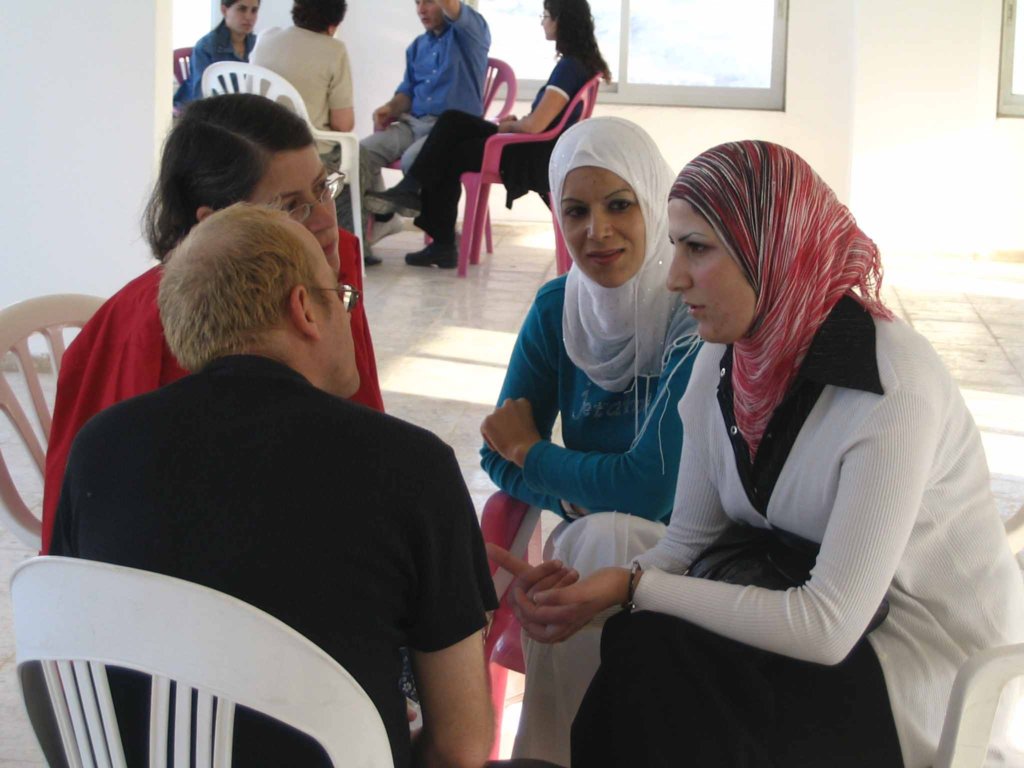By Dr. Yehuda Stolov | Executive Director
Tel Aviv University group, November 2nd
Today the first encounter of the semester was held and we have been joined by new members. We started out with introductions, and then moved on to the topic of this semester's encounters, holidays.
We started off with Shabbat, using Maimonides' Mishneh Torah as our main reference source. It started out with the halachot ta'asi vi lo ta'asi ("to do", and "to not do" commandments), it moved on to defining the types of sins/ mistakes and the punishments of each one according to its type. Some types of sins/ mistakes include, unintentional violations of the mitzvot or halachot (for example dragging a chair and accidentally digging a hole in the ground), being aware of the action as certainly resulting in a violation and still doing it, intentionally doing a direct violation, and others, and the punishments include sacrifices, leashes, and excommunication etc,..
Then we moved on to Al-Juma'a which has some parallels to Shabbat in Islamic belief (although fewer than we are used to), we read a verse from the Quran calling people to Al-Juma'a prayer, and then moved on to read Hadiths from Sahih Al-Bukhari, they included Hadeeths that talk about the importance of talking a bath (ightisal) before going to the prayer. There was also a Hadeeth that mentioned Juma'a as the holy day for Muslims as opposed to Shabbat for Jews and Sunday for Christians.
Nov. 9th, 2016
We read sections of al-Bukhari about the injunction of the Prophet (PBUH) to wash one’s entire body on Friday before prayer, even if one is late to prayers. Included in this is the preference that one pray very soon after washing, and that doing so is equivalent to bringing a material sacrifice (the closer to prayer, the better the sacrifice it is compared to---camels, cows, sheep, chickens, etc.). We discussed a bit about the role of men and women in public prayer, between the two religions and in different communities.
We also talked about the laws of Shabbat and the relationship between intent, ability, and result of prohibited actions on Shabbat. This topic included doing a forbidden action but for an unrelated reason (not allowed) and more than one person performing a prohibited activity together with another person (not allowed, but doesn't carry a court punishment). We learned the case of when two individuals perform an act together, one whose participation is required and one whose participation is optional (for example a weightlifter and his much weaker friend carry a heavy board together), how the first person is punished while the second is not. This led to a discussion on intent versus performance of an action in law and the two religions and how fair or just this system is for determining responsibility.
Links:
Project reports on GlobalGiving are posted directly to globalgiving.org by Project Leaders as they are completed, generally every 3-4 months. To protect the integrity of these documents, GlobalGiving does not alter them; therefore you may find some language or formatting issues.
If you donate to this project or have donated to this project, you can receive an email when this project posts a report. You can also subscribe for reports without donating.
Support this important cause by creating a personalized fundraising page.
Start a Fundraiser